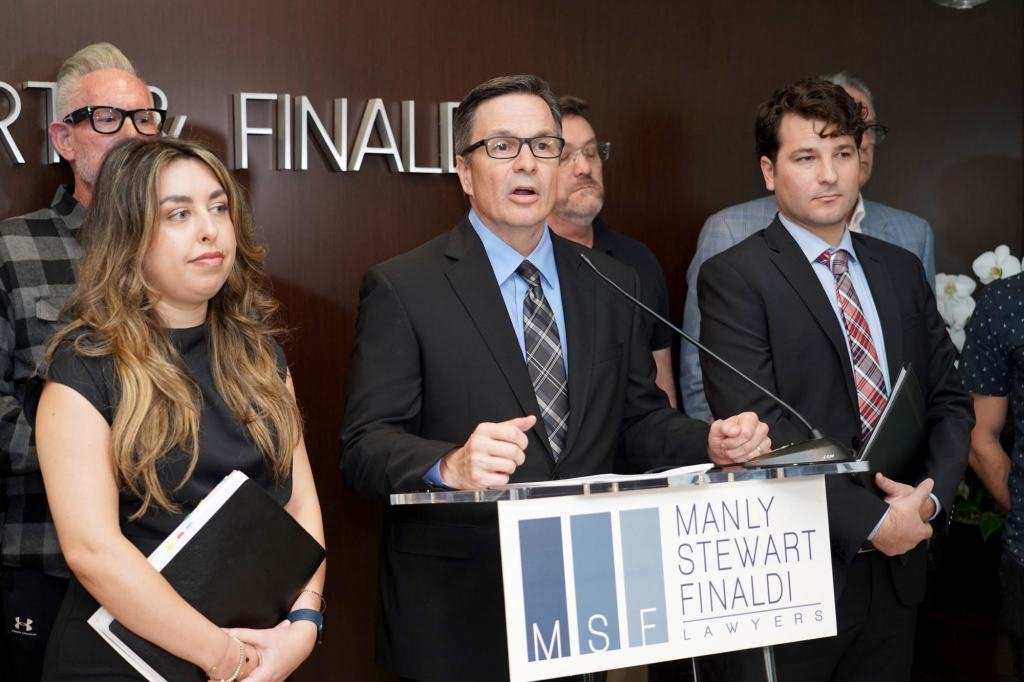Allegations Against Dr. William Thompson IV: A Deep Dive into Systemic Failures in Healthcare
In a dimly lit examination room, a patient sits nervously on the examination table, anticipating what should be a routine check-up. Instead, they experience an unsettling encounter, grounded in trust but marred by abuse. Dr. William Moore Thompson IV, once a beacon of hope for individuals grappling with HIV and AIDS, now stands accused of exploiting that trust under the guise of medical expertise. As more than 160 allegations surface, questions regarding systemic oversight at Hoag Hospital loom large.
The Gravity of Allegations
More than 21 civil lawsuits have emerged in Orange County Superior Court, each detailing accounts of sexual misconduct, invasive examinations, and harrowing experiences that patients say left lasting scars. Patients allege the following:
- Prostate exams conducted without gloves.
- Uninvited fondling with explicit comments regarding their bodies.
- Displaying his own erect penis during medical checks.
- Sexual innuendos and advances that blurred the line between care and exploitation.
Beyond the civil petitions, Thompson is also facing criminal charges related to sexual assault. To date, he has pleaded not guilty, and his medical license has been revoked. Amidst these legal battles, new revelations suggest a troubling narrative involving Hoag Hospital’s responsibility. As the lawsuits consolidate towards a single master complaint, focus shifts toward whether the hospital had been knowingly complicit in Thompson’s misconduct.
Hoag Hospital’s Alleged Oversight
Thompson enjoyed staff privileges at Hoag Hospital from 2007 until his arrest in late 2023. This long tenure raises eyebrows, especially given claims from the accusers’ attorneys that his “blatant and overt” behavior should have caught the hospital’s attention. “It’s hard to fathom how such egregious conduct could happen under the watchful eye of the medical staff,” remarked Dr. Jane Ellison, a healthcare ethics expert from Stanford University, pointing to the importance of stringent monitoring of medical professionals. “When patients come forward, it should signal a serious alarm within the institution.”
Hoag Hospital officials maintain that Thompson was a private practitioner, not an employee, and that they had not received any previous complaints regarding his conduct. In a statement, Hoag asserted their commitment to “world-class care defined by respect, integrity, compassion, and excellence.” However, the latest master complaint insists that the misdeeds alleged against Thompson were not limited to his patient interactions but extended to his behavior with Hoag staff, including sexual encounters in staff areas.
The Climate of Complicity
Integral to the claims is not only the assault of patients but allegations that Thompson engaged in sexual relationships with nurses and housekeeping staff, purportedly within the hospital’s premises. Text messages cited in the master complaint reveal instances of Thompson boasting about sexual encounters in Hoag’s locker room and staff areas. “I would describe it as a frat house environment,” stated Morgan Stewart, an attorney with the firm representing accusers, pointing to an ethos of permissive conduct that flourished behind the hospital’s walls. “He essentially treated the hospital as his own private sexual playground.”
Allegations of impropriety had been reported well before Thompson’s arrest. According to the complaint, individuals had approached both the Newport Beach Police Department and other physicians within Hoag regarding Thompson’s indiscretions. “The guy was a loose cannon. If you didn’t see that, I don’t know what you were looking at,” Stewart noted, adding urgency to the need for systemic accountability.
A Culture of Silence?
Some legal experts argue that this case may expose a wider issue within healthcare facilities—a culture where abuse can flourish in silence. “It is alarming how often allegations against powerful figures go unchallenged due to fear, complicity, or negligence,” said Dr. Robert Klein, a psychologist specializing in institutional abuse. “When systems fail to act, they create environments conducive to further abuse.” A recent study from the American Journal of Public Health found that nearly 60% of healthcare professionals witness unethical behavior without reporting it, suggesting an unsettling status quo.
The consolidated lawsuits may challenge Hoag Hospital’s mandate for patient safety and care. While the hospital has previously distanced itself from Thompson’s actions, the mounting evidence presents a narrative where institutional blind spots potentially played a role in enabling years of abuse. The question now looms—will Hoag Hospital be held accountable for a failure of oversight, and what implications might this have for other institutions in similar positions?
As the legal proceedings unfold, the courage of Thompson’s accusers highlights both the power of the human voice and the ethos of trust within healthcare. However, with over 160 victims coming forward, the system designed to protect them appears criminally negligent. Urgent reforms and a vigilant reevaluation of existing protocols stand at the center of looming discussions as the narratives of healing and justice weave together against a backdrop of profound betrayal.









